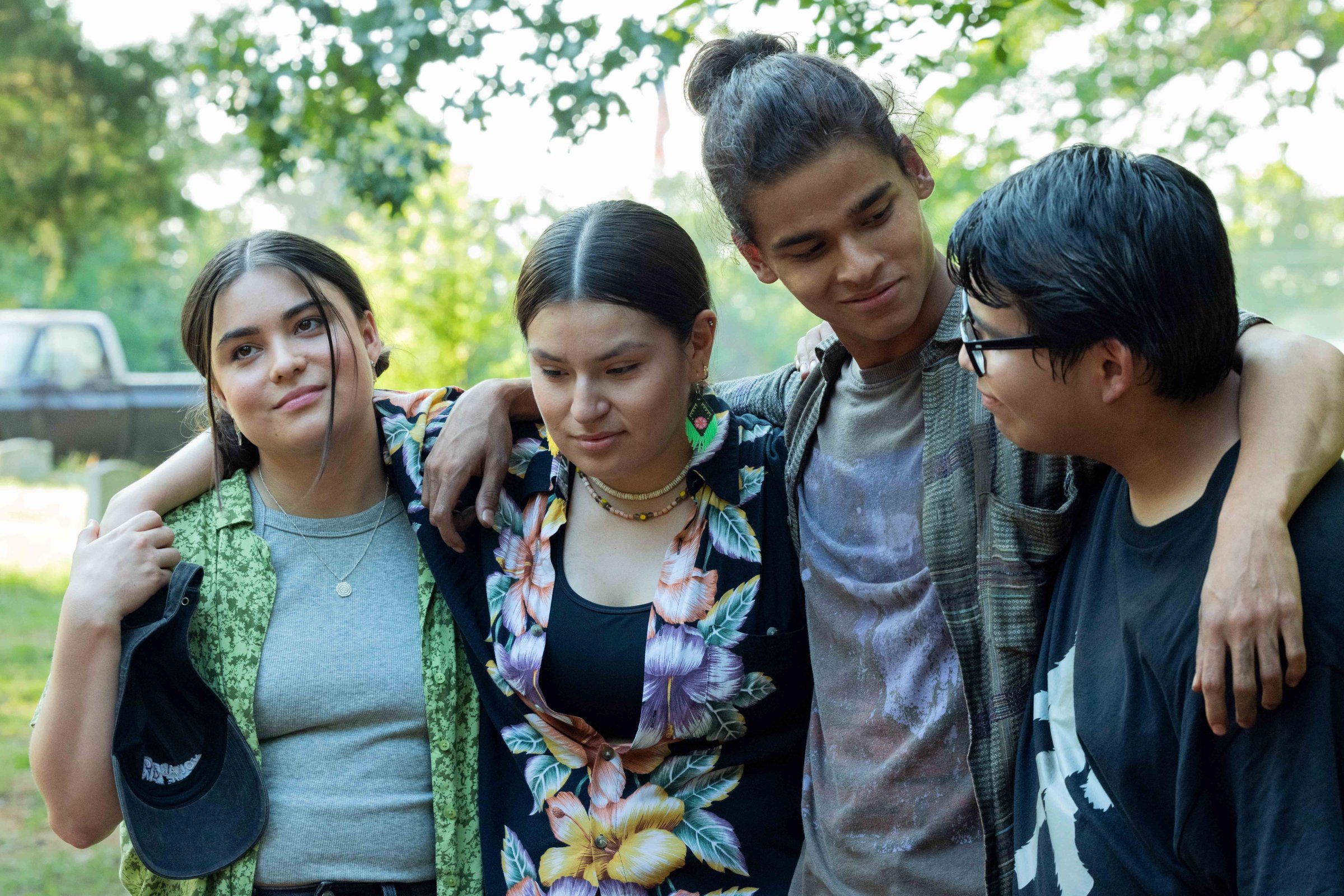
This article discusses the series finale of Reservation Dogs.
In the series finale of FX's Reservation Dogs, a teenager visits her aunt in prison. Willie Jack (Paulina Alexis) buys an armful of snacks for Hokti (Lily Gladstone) and delivers the sad news that the medicine man she's been shadowing, Fixico (Richard Ray Whitman), has died. Using a bag of Flamin' Flamers chips as a visual aid, Hokti consoles her by pointing out that Fixico isn't exactly gone. She places a chip on each of the other snacks to represent what he taught each person he knew and notes that those people will, in turn, share his knowledge with others. "It's how community works," Hokti says. "It's sprawling. It spreads. What do you think they came for when they tried to get rid of us? Our community. You break that, and you break the individual."
It's an apt summation of the groundbreaking, profound, and utterly original series that showrunner Sterlin Harjo, who co-created Reservation Dogs with Taika Waititi, has made. What began as a dark comedy about four Indigenous teens on an Oklahoma reservation scheming and stealing to realize their dead friend Daniel's (Dalton Cramer) dream of moving to California, has evolved over the course of three seasons to become a celebration of the community that raised them. Rez life isn't easy. Daniel died by suicide. Hokti, who is also Daniel's mother, has been forcibly separated from her kin by the colonizers' state. Poverty runs rampant, and opportunities are limited. But, as conceived by Harjo and his team of Native actors, writers, and directors, it's also a place where familial bonds transcend traditional definitions of family.
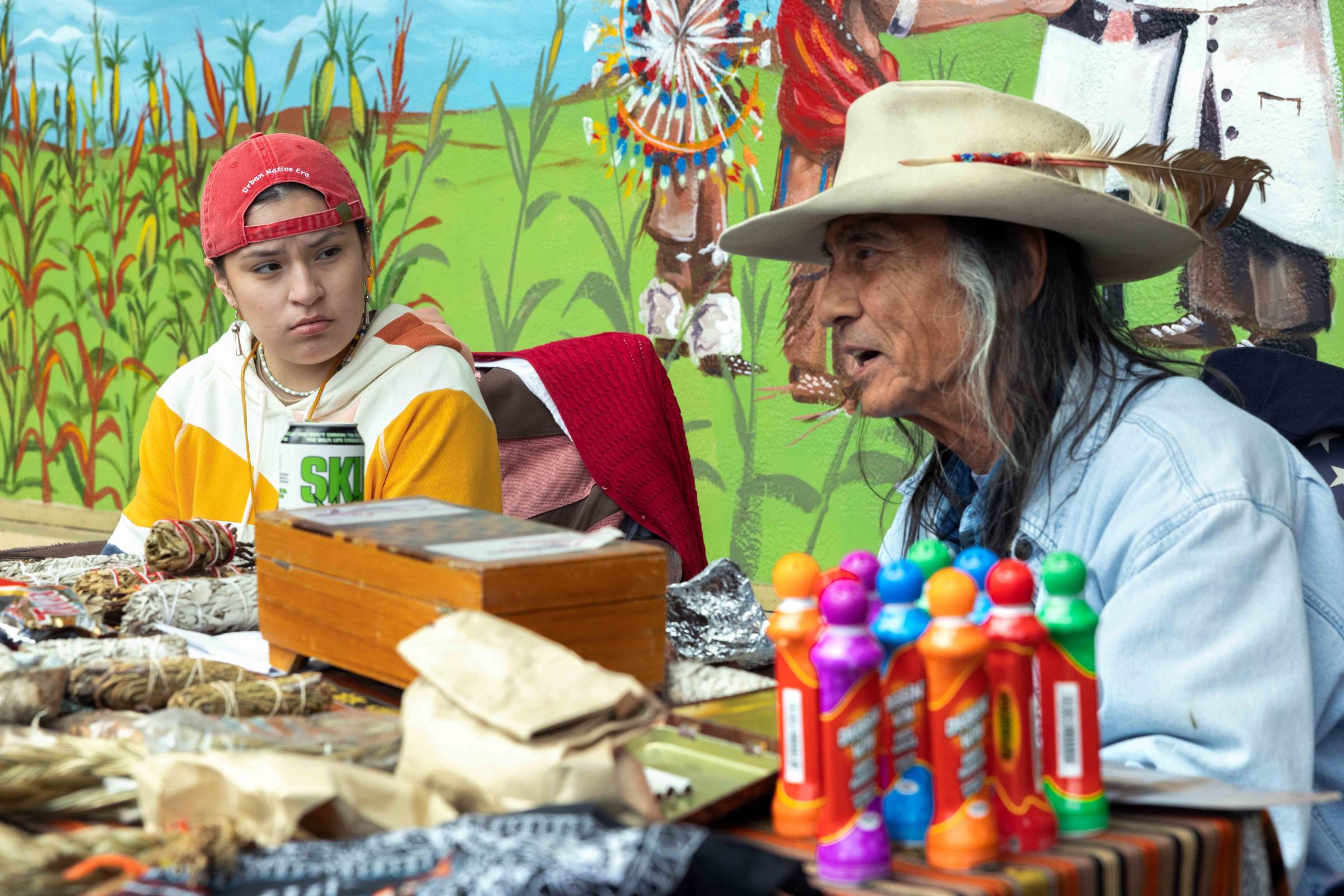
The show opened, just two years ago, with a spectacularly inept heist. Willie Jack and her three best friends, Elora (Devery Jacobs), Bear (D'Pharaoh Woon-A-Tai), and Cheese (Lane Factor) steal a delivery truck and sell it to the sketchy local scrap yard. (The finale's prison scene closes the loop on some imagery from the premiere: the truck is full of Flamin' Flamers.) Dubbed the Reservation Dogs by a wandering pair of twin wannabe rappers, Mose (Lil Mike) and Mekko (FunnyBone), the group is also unwittingly drawn into a vendetta with another teen mini-gang, who (despite the presence of a kid known as White Steve) call themselves the NDN Mafia.
But the crime-comedy premise quickly fades into the background, along with the titular Quentin Tarantino references. The Rez Dogs aren't gangsters; they're kids desperate for money, adventure, and an end to their grief. (In fact, as we learn much later, they only got away with jacking the chip truck because their elders decided to look the other way.) Elora, the oldest, angriest, and most restless of the friends, eventually forms a bond with NDN Mafia's leader, Jackie (Elva Guerra), and takes off with her on an abortive West Coast road trip. As they all keep living side-by-side, the rivalry between kids who have so much in common is eroded.
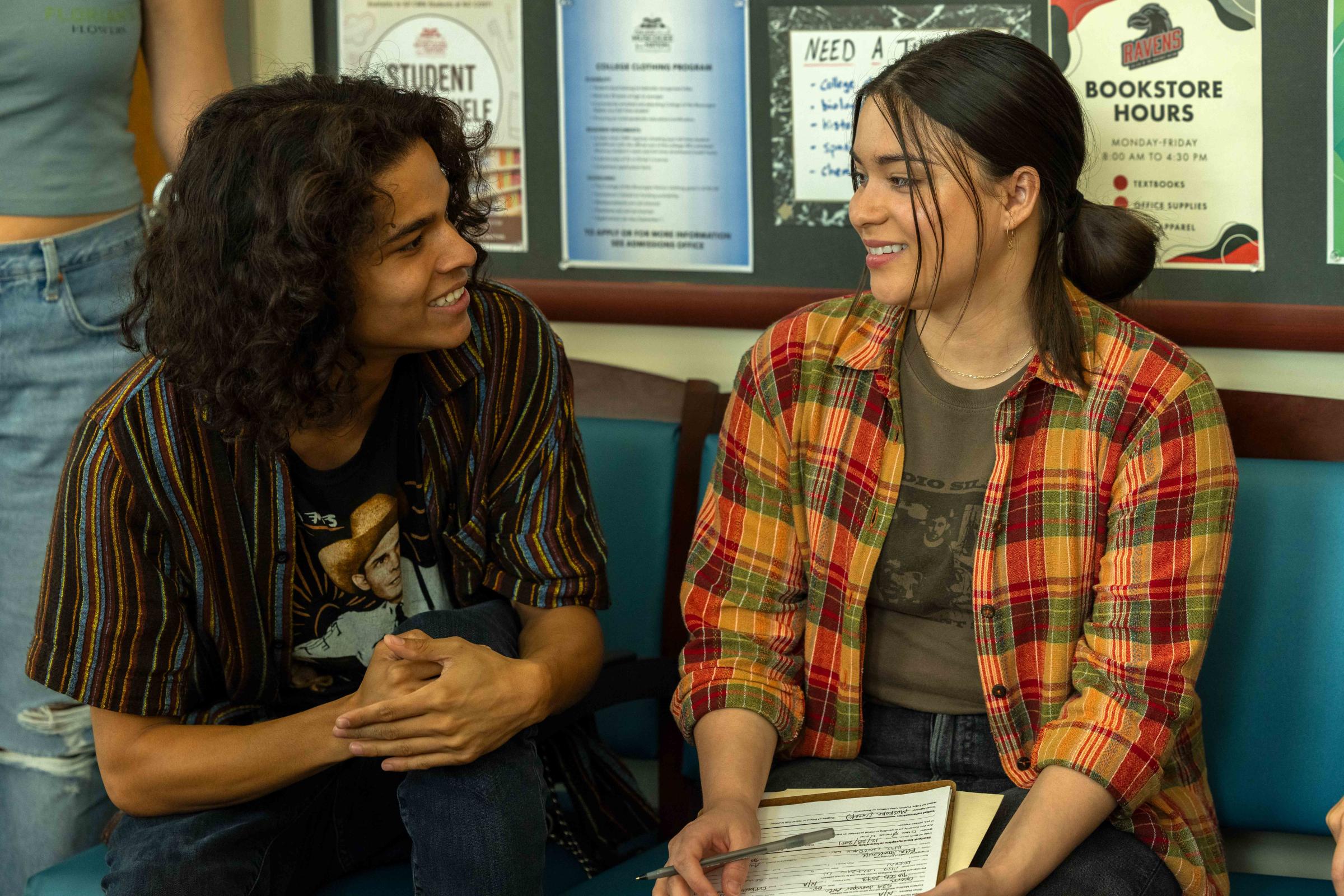
Meanwhile, the Rez Dogs grow up. Bear, who once idolized his absentee rapper father, Punkin (Sten Joddi), learns to be a better man. Elora discovers that going to college might be a more constructive way to leave the reservation than running away. Willie Jack, by contrast, finds her purpose on the reservation, uniting friends who've been scattered by their sadness over Daniel and apprenticing for Fixico. The baby of the bunch, Cheese—a sweet kid who never fails to identify his pronouns when introducing himself—has, in the wake of his custodial uncle's arrest and a short, sad stint in a group home, found a home with a loving grandmother (Casey Camp-Horinek) who is not actually his blood relative.
He's not the only Rez Dog who has, in a sense, been raised by the community. Orphaned at a young age by her mother Cookie (JaNae Collins) and unaware until this season that her father (Ethan Hawke's Rick) is even alive, Elora grew up under the stern eye of her biological grandmother, Mabel (Geraldine Keams). Working with a crew of roofers that includes Daniel's dad, Danny (Michael Spears), Bear is treated to the fatherly guidance—and the lighthearted hazing—Punkin wasn't around to give him. He also feels a kinship with Maximus (the wonderful Graham Greene), a mentally ill desert dweller who turns out to be Fixico's estranged cousin.
These kids are the perfect window into the community because they need so much from it. In absorbing the knowledge and care—but also learning from the mistakes—of their loving, flawed elders, they discover what's special about a place they'd previously dismissed as just their dead-end hometown. When they finally make it to California, at the end of Season 2, there's a sublime moment of well-earned catharsis on the beach. But they also, in their naiveté, get their car and money stolen; by the time Elora's aunt Teenie (Tamara Podemski) arrives to escort them back to Oklahoma, no one is serious about sticking around in L.A. As viewers who, for the most part, went into the show with limited knowledge of Native American cultures and reservation life, we got to go along with them on this coming-of-age journey.
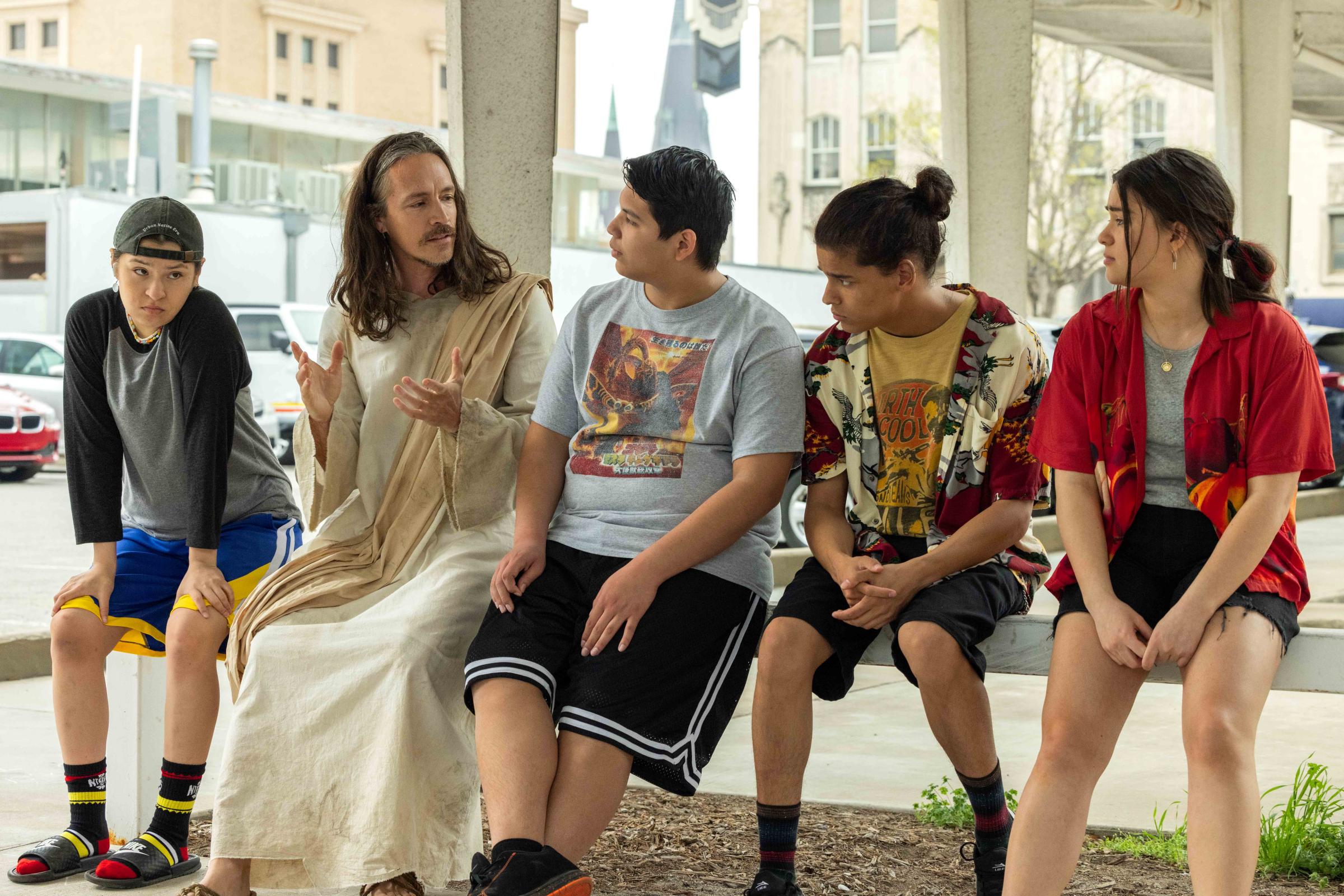
In just 28 episodes, without a weak one in the bunch, Harjo fleshed out three generations' worth of characters in the fictional town of Okern. One Season 2 episode left the Rez Dogs behind to follow Bear's overworked mom, Rita (Sarah Podemski), and her pals to the annual Indian Health Service conference, where they seize the rare opportunity to cut loose. Single in their 30s, these women have nonetheless been tied down for half their lives with kids and other responsibilities too often shirked by their male counterparts. A few episodes later, Bigfoot-obsessed rez cop Big (Zahn McClarnon) goes on an accidental acid trip, finds a cabal of powerful white men performing a lewd rite on Native land, and relives the shameful day he failed to save Cookie from her deadly motorcycle crash. A standout Season 3 episode (that reminded me of Dazed and Confused) flashes back to the grandparents' generation's last day of high school in '70s.
As Willie Jack and Hokti's conversation suggests, community in Okern extends beyond the living. Not only do the dead persist in characters' memories; they also resurface on Earth to support their corporeal kin. During an earlier prison visit, Willie Jack and Hokti pray together, surrounded by a legion of ancestral healers. An emotional episode from the current season finds Cookie returning to help Rita decide whether to take a promotion that will mean moving to Oklahoma City. In the series finale, Bear bids farewell to the spirit—William Knifeman (Dallas Goldtooth), a warrior who suffered an absurd death at Little Bighorn—who first appeared to him after he got jumped by the NDN Mafia in the premiere. Like Bear's honorary uncles, the spirit has taught him how to be a part of this community: “I learned that I don't need to be the only leader.”
Deeper into the supernatural realm, a mythical hoofed Deer Lady (Kaniehtiio Horn) stalks the American roadways, slaughtering bad men and helping good ones. Left behind at bus stop en route home from California, Bear runs into her at a roadside diner. She drives him back to Okern, in the midst of a mission to exact vengeance on a guard who abused children at one of the brutal Indian boarding schools used by the U.S. government and Christian missionaries, well into the 20th century, to force Native Americans to abandon their own cultures and assimilate into mainstream society.
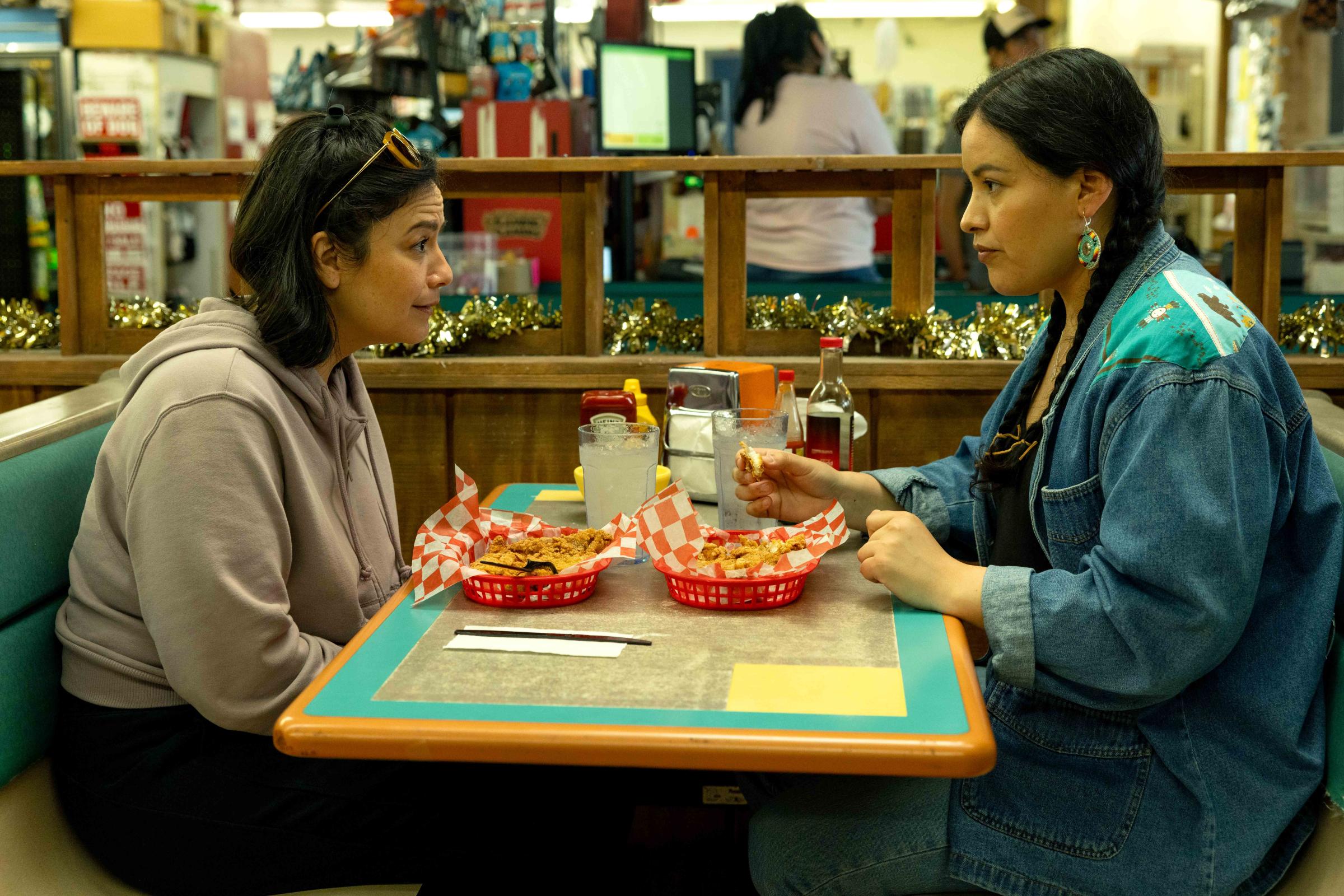
Reservation Dogs was an astounding feat of compression. In his keen awareness of how rare it is to see any Native stories on TV, let alone ones afforded such creative freedom, Harjo squeezed every last drop of representation out of the series' 14-ish hours of screen time. Most shows that attempted what Rez Dogs accomplished would've felt overcrowded, between the dozens-strong cast of characters and the historical underpinnings and the spiritual resonances and the variety of genres sampled, from heist to hangout comedy to the penultimate episode's bittersweet tête-à-tête between Jacobs and Hawke (whose dialogue-heavy script nodded to Hawke's Before trilogy). But Harjo understood how to let each story breathe within its tiny, half-hour box, how to deploy lightness—both humor and lightness in the sense that Italo Calvino meant it, a dextrous style characterized by “precision and determination”—in service of heavy subject matter.
Death may be the weightiest topic of all, and it suffused this show that was also, paradoxically, about the infinite possibilities of youth. Daniel's suicide cast a shadow over the first two seasons, until the Rez Dogs reaffirmed their love for each other on the beach in L.A., where his spirit joined them in a final hug. When it was Mabel's time to go, Elora's home filled up with aunties and uncles and friends, there to shepherd her to the next life. Cookie's accident left her daughter aggrieved and Big guilt-ridden. But each death brought the community together, too. It makes sense: every story about Native Americans in the 21st century is a story of resilience.
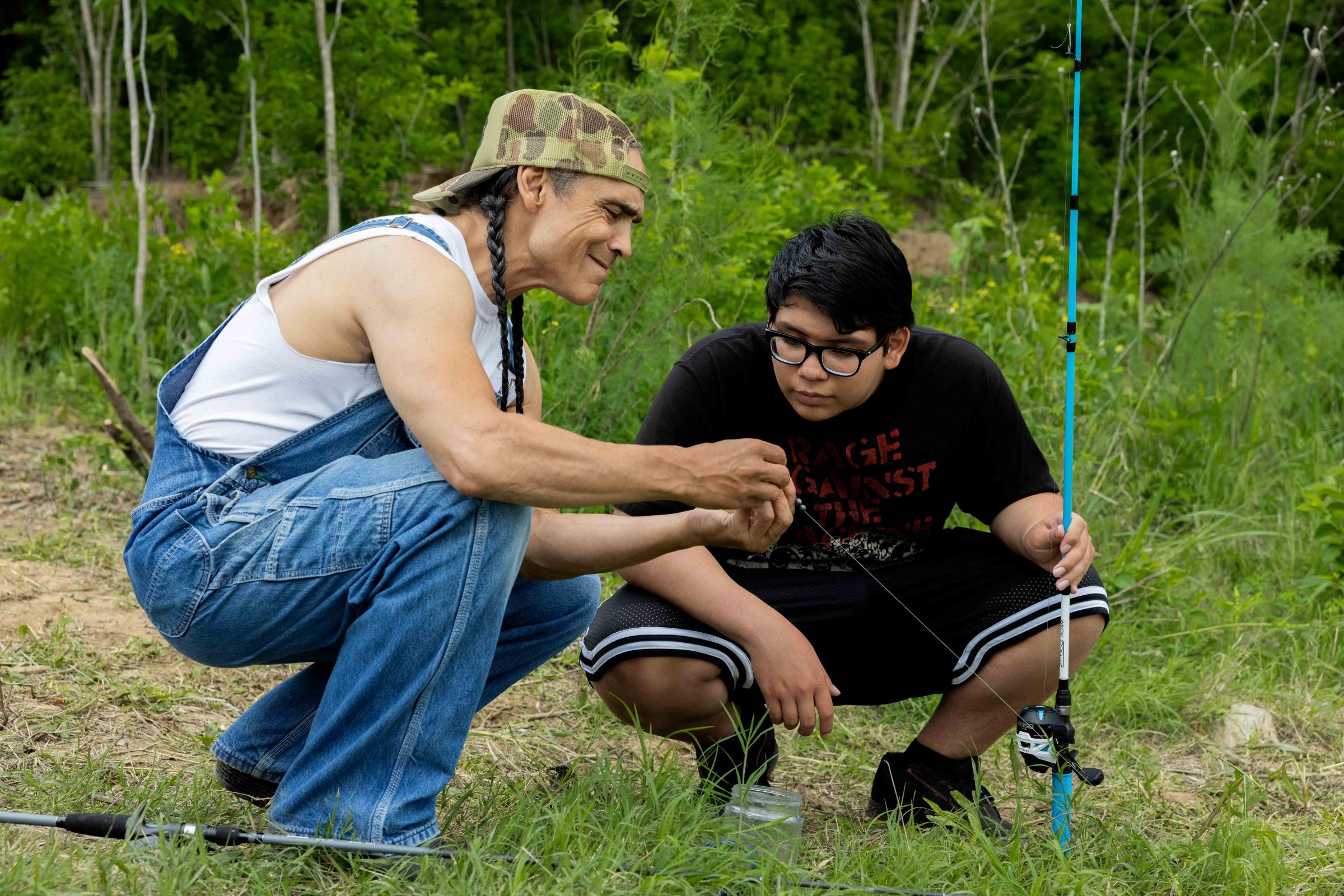
So it's fitting that the finale—a low-key episode by the show's standards—also centers around a funeral. As Fixico's protégée, Willie Jack oversees his burial. Once again, Okern unites around a beloved elder. The women cook a meal to share, the young men dig the grave, and the grandparents sit around busting everyone's chops, as is their right. Teenie, who barely knew Elora before returning to Mabel's deathbed, is welcomed back into the fold. So are Kenny Boy (Kirk Fox) and Ansel (Matty Cardarople), the so-called meth heads from the scrapyard, who want desperately to be part of the rez family. Harjo, who co-wrote (with Chad Charlie) and directed the episode, doesn't place blame on Teenie or Rita, who takes the Oklahoma City job, or Elora, who gets into college, for leaving Okern. Unlike, say, the unrepentantly selfish Punkin, they either always knew or have come to see that they'll be part of this community forever.
As Hokti explains to Willie Jack: "The thing about community is, you gotta take care of it. You have to play your part." By listening to elders and passing on their wisdom to the next generation, says Hokti, "we keep going." By depicting its characters' world, without compromise, Reservation Dogs also honored and preserved the embattled communities it represents. Although its remarkable run has come to an end, I have no doubt that it, too, will keep going.
More Must-Reads from TIME
- Caitlin Clark Is TIME's 2024 Athlete of the Year
- Where Trump 2.0 Will Differ From 1.0
- Is Intermittent Fasting Good or Bad for You?
- The 100 Must-Read Books of 2024
- Column: If Optimism Feels Ridiculous Now, Try Hope
- The Future of Climate Action Is Trade Policy
- FX’s Say Nothing Is the Must-Watch Political Thriller of 2024
- Merle Bombardieri Is Helping People Make the Baby Decision
Contact us at letters@time.com